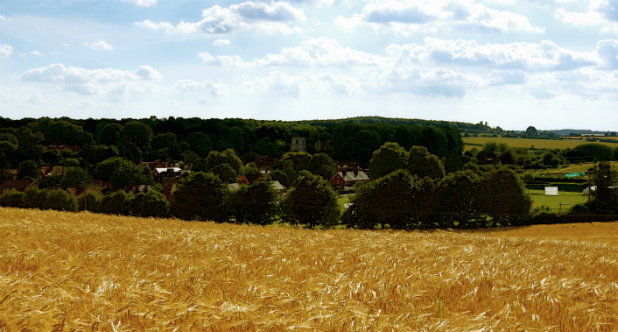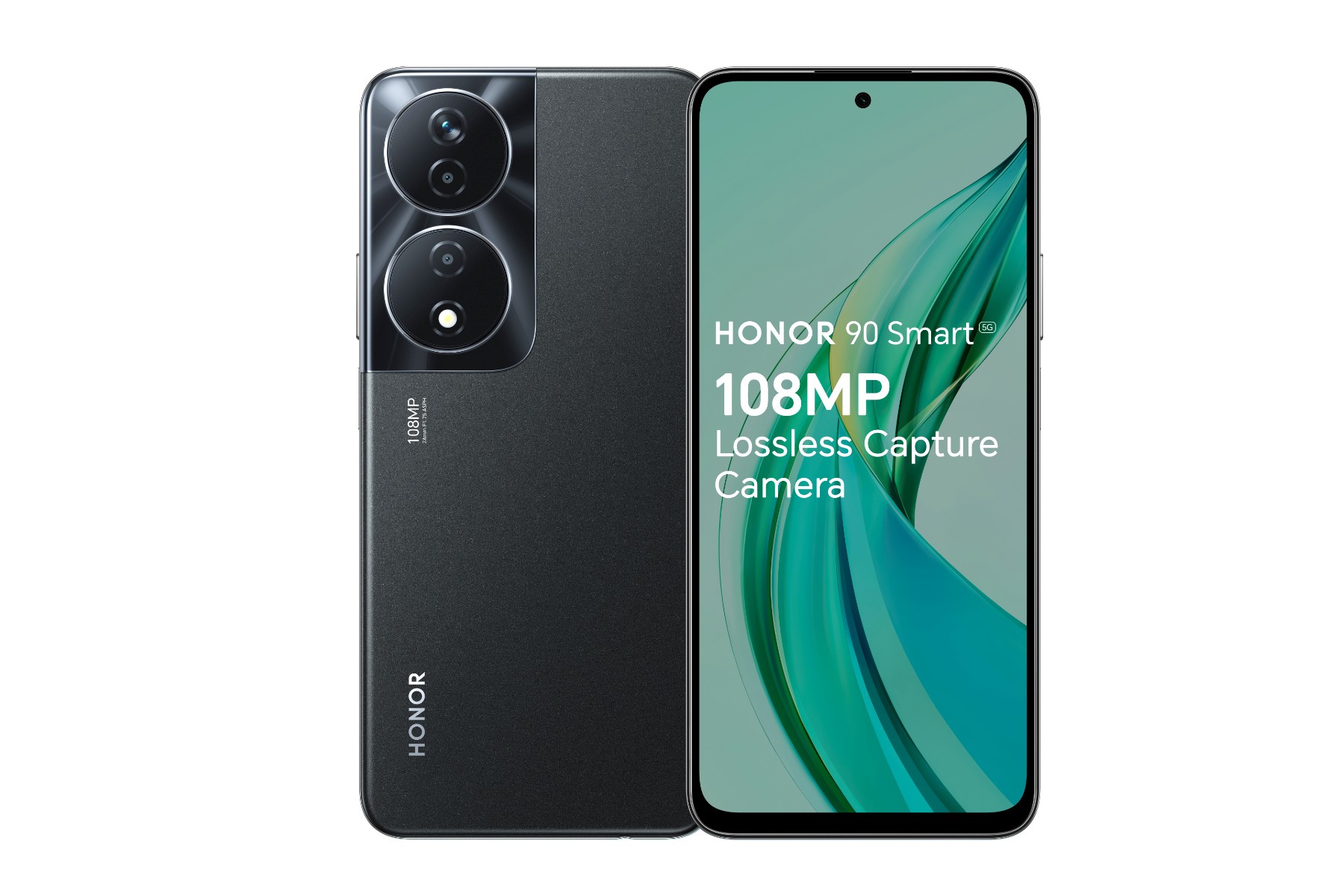
Minchinhampton in Gloucestershire announced as first #ROSS100 community
- Vodafone UK announces Minchinhampton, Gloucestershire as the first rural community to receive 3G mobile coverage under the Vodafone Rural Open Sure Signal Programme.
- Minchinhampton is the first of the 30 initial communities joining the programme, from St Andrews in the Orkney Islands to Chesil Bank in Dorset, to be connected.
- The Vodafone Rural Open Sure Signal programme has received applications from communities across the UK, from the Shetland Islands to Snowdonia.
- Vodafone UK is spending more than £1 billion on its network and services this year.
Vodafone UK has announced the beautiful market community of Minchinhampton, Gloucestershire as the first community in a rural mobile not-spot location to receive 3G coverage under its Rural Open Sure Signal programme. Situated on a difficult to reach hill top location within the Cotswold area of outstanding natural beauty, Minchinhampton has until now suffered from unreliable mobile coverage and slow network speeds. With the installation of Vodafone’s innovative Sure Signal technology, the local community in Minchinhampton will from today benefit from high quality 3G voice services, and much needed access to the internet via mobile devices, contributing positively to business and everyday life.
The names of the other 29 in the first wave of communities to join the Rural Open Sure Signal programme have also been announced today. The full list includes communities from each UK country, including: Isle of Luing in Argyll (Scotland), Pomeroy in County Tyrone (Northern Ireland), Bryneglwys in Denbighshire (Wales) and Itchen Valley in Hampshire (England).
The Rural Open Sure Signal programme is a national initiative by Vodafone UK to provide reliable mobile access to up to 100 rural communities in mobile not-spot locations. Launched in July 2014, with support from local MPs, councils and rural action groups, the programme has received an overwhelming response from around the country. Applications have come from island communities in rural Shetland to mountain communities in Snowdonia and picturesque Cornish villages on the southern coastline as well as along the east coast in Norfolk.
The integral role of mobile communications in everyday life is evident from the rapid rise of smartphone usage and more than half the country accessing the internet through their mobile phone.** Mobile connectivity plays a vital role in keeping communities in touch and helps support local economies. However, rural and remote locations often miss out on advantages provided by modern communication tools, due to the complexity of delivering network coverage. This can be because of the geography of the area or difficulties with planning permissions in places of outstanding natural beauty. The Rural Open Sure Signal programme uses innovative ‘femtocell’ technology to provide an alternative solution to bring mobile access in locations where it isn’t possible for networks to provide coverage through traditional means.
Jeroen Hoencamp, Vodafone UK Chief Executive, said: “Mobile connectivity is an essential service for communities and businesses to thrive in today’s digital world and support local economies. I am delighted to announce Minchinhampton as the first of the 100 communities we will light up. As part of the Rural Open Sure Signal programme, we are committed to investing in our network, using innovative technologies such as Sure Signal to provide access even in remote locations where it is otherwise almost impossible to reach. I am excited to see the transformation for Minchinhampton and every other community which has been successful for this pioneering programme.”
Geoffrey Clifton-Brown, MP, Cotswolds said: “I’m delighted that Minchinhampton is the first successful applicant for Vodafone’s Rural Open Sure Signal programme. This scheme will be a huge benefit to the local community, helping businesses to connect with their customers and allowing people to stay in touch with their family and friends.”
Stephen Hemmings, Village champion for Minchinhampton commented, “I am thrilled that we are the first community in the Rural Open Sure Signal programme to receive this ground-breaking technology for mobile coverage. We’re looking forward to experiencing the great benefits of 3G mobile services first-hand and expect this will give a real boost to our rural economy. The thousands of tourists who visit our community and its surrounding area will also greatly benefit from this”.
Vodafone’s initial Open Sure Signal trial has seen the connection of 12 rural communities across the UK, from Walls in the Shetland Islands to Newton St Cyres in Devon. Communities connected so far have been enjoying social media using mobile internet whilst businesses, from GPs to a mussel farmer, now have mobile signal to help make their businesses work better.
As well as using Rural Open Sure Signal to plug rural “not-spots”, Vodafone is spending more than £1 billion on its network and services across the country this year, including extending its 4G coverage to 340 cities and towns and thousands of smaller communities across the UK. Vodafone have pledged to provide coverage using 2G, 3G or 4G services to 98% of the UK population.
Rural Open Sure Signal programme will connect up to 100 rural communities in non-spot locations over the next 12 months. Further communities will be announced over the few months. For more information on the programme, visit www.vodafone.co.uk/rural. Vodafone will continue to accept applications submitted after 7 November 2014.
Notes to editors
- The programme involves the use of innovative ‘femtocell’ technology. Vodafone UK has pioneered the use of this technology with Vodafone Sure Signal. Launched in 2009, Vodafone Sure Signal is used by hundreds of thousands of people across the UK every day to boost their in-building 3G coverage. It plugs straight into a home broadband line. For more information visit www.vodafone.co.uk/suresignal
- The successful communities will receive Open Sure signal technology in the communities subject to required planning permissions and required processes
- **Ofcom Communications Market Report 2014 http://stakeholders.ofcom.org.uk/market-data- research/market-data/communications-market-reports/cmr14/
- Coverage predictions are based on a number of factors including that Vodafone can obtain planning permission to build sites, access to land or buildings to place equipment and backhaul to connect sites.
- The next 29 communities to shortlisted to receive Rural Open Sure Signal technology will be :
St. Andrews (Orkney)
Isle of Luing (Argyll)
Seil & Easdale (Argyll)
Killeter (Castlederg, Co Tyrone)
Pomeroy (Co Tyrone)
Bryneglwys (Denbignshire)
Corris (Gwynedd)
Hillington (Norfolk)
High Kelling (Norfolk)
Upper Sheringham (Norfolk)
Throverton (Devon)
Bridgerule (Devon)
Shobrooke (Devon)
Borrowdale (Cumbria)
Chesil Bank (Dorset)
Coln St Aldwyns (Gloucestershire)
Easton (Itchen Valley, Hampshire)
Bramdean (Hampshire)
Moylegrove (Pembrokeshire)
Blackerstone (Berwickshire)
Broad Chalk (Wiltshire)
Letcombe Regis (Oxfordshire)
Childrey (Oxfordshire)
Newborough (Staffordshire)
Spring Grove (Somerset)
Middleton-in-Teesdale (Durham)
Extended communities:
Blakeney (Norfolk)
Caldbeck (Cumbria)
East Garston (Berkshire)

![Falling Dripping Water Drop[Adobe Stock] Falling Dripping Water Drop[Adobe Stock]](https://www.vodafone.co.uk/newscentre/app/uploads/2024/04/Falling-Dripping-Water-DropAdobe-Stock.jpg)


![Dawlish Sunrise [Adobe Stock] resized stock photo of Dawlish in Devon](https://www.vodafone.co.uk/newscentre/app/uploads/2024/04/Dawlish-Sunrise-Adobe-Stock-resized.jpg)